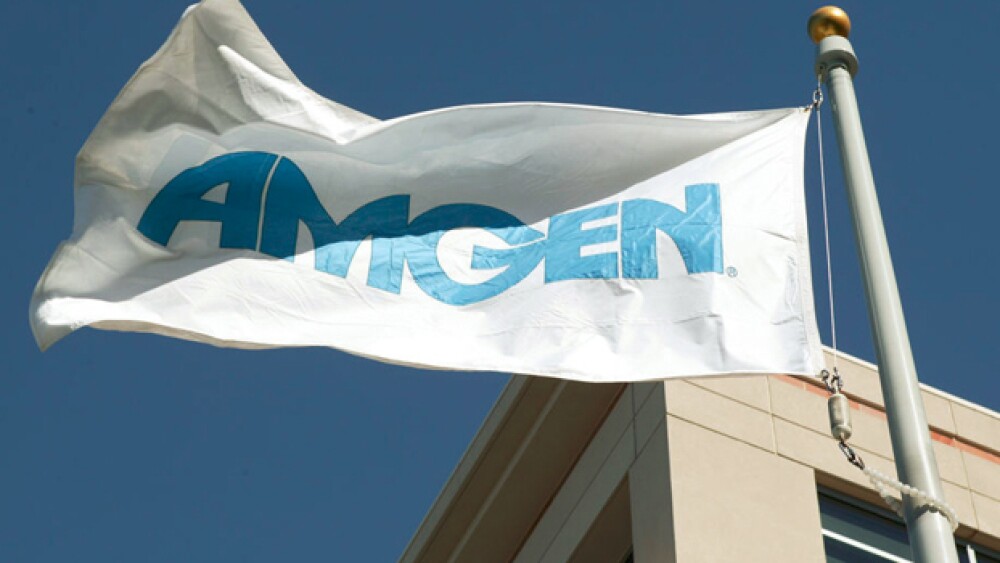This follows a 2017 rejection by the agency, requesting more data. As Jefferies analyst Michael Yee wrote in a note to clients, Amgen is “back in the game.”
The U.S. Food and Drug Administration (FDA)’s Bone, Reproductive and Urologic Drugs Advisory Committee (BRUDAC) voted 18 to 1 to recommend Amgen and UCB’s Evenity (romosozumab) to treat postmenopausal women with osteoporosis. This follows a 2017 rejection by the agency, requesting more data. As Jefferies analyst Michael Yee wrote in a note to clients, Amgen is “back in the game.”
Evenity is a bone-forming monoclonal antibody. It inhibits the activity of sclerostin, which allows it to rapidly increase bone formation and simultaneously reduce bone resorption. The companies’ programs for Evenity development included 19 clinical studies involving about 14,000 people.
The Phase III trials included FRAME, a placebo-controlled study with 7,180 postmenopausal women with osteoporosis at risk of fracture; ARCH, an active comparator-controlled trial with 4,090 postmenopausal women with the same fracture risk; and STRUCTURE, which studied 436 postmenopausal women with osteoporosis.
The BRUDAC Adcom evaluated FRAME and ARCH in terms of the clinical benefit-risk profile of the drug, including cardiovascular safety issues seen in the ARCH study.
In the U.S. fifty percent of women over the age of 50 will experience an osteoporotic fracture.
Last week, Evenity was approved by the Japanese Ministry of Health, Labor and Welfare, the first approval in the world. The European Medicines Agency (EMA) is currently reviewing the drug.
“We are pleased with the Committee’s recommendation to approve Evenity for the treatment of postmenopausal women with osteoporosis at high risk of fracture,” stated David M. Reese, Amgen’s executive vice president of Research and Development. “A fracture due to osteoporosis can be devastating to the lives of patients. After an osteoporotic fracture, a woman is five times more likely to suffer another fracture within the first year, and her risk remains elevated over time if untreated.”
Reese went on to say, “Despite available therapies, these women who are at high risk for fracture could benefit from an additional treatment option that has the potential to both build new bone and slow existing bone loss. We are committed to working with the FDA to help make Evenity available to appropriate patients.”
Of the 19 on the panel, 16 voted yes, two voted yes for a different indication, and one voted no. Despite the overwhelming recommendation, the Committee emphasized the need for post-marketing studies of the drug. Previous studies identified a higher risk of a major cardiovascular event, such as heart attack or stroke in patients receiving the drug. As a result, the FDA rejected the drug in 2017, requesting more data.
The 2017 application was to treat all postmenopausal women at risk of fracture. In this latest resubmission, which had data from two more Phase III trials, narrowed the scope of the patient population to women with a history of broken bones or who did not respond to other therapies.
The Adcom, in addition recommending follow-up studies, recommended the drug come with a warning label related to cardiovascular risk. The warning label could potentially be removed if follow-up studies backed up the drug’s safety.
Evenity will require a monthly injection.
At the moment, the dominant osteoporosis drugs on the market are Radius Health’s Tymlos (abaloparatide), which in the first three quarters of 2018 generated $64.8 million, and Eli Lilly’s Forteo (teriparatide), which brought in $1.1 billion globally in the first three quarters of last year. Forteo’s patents will expire this year, which will likely inspire generic competition.





